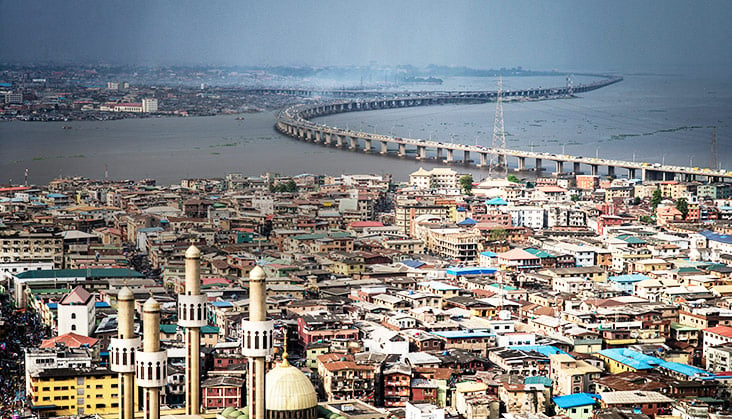Lagos witnessed surge in tourism and hospitality revenue last December

By Dooyum Naadzenga
Lagos, Nigeria’s commercial centre witnessed a surge in economic activities during the period spanning from November 19 to December 26, 2024, with a remarkable influx of tourists and a significant boost in the hospitality sector.
The Lagos Airport (Murtala Muhammed International Airport – MMA) reported approximately 550,000 inbound passengers during this period, with an impressive 90% identified as diasporas visiting primarily for leisure and tourism purposes. This influx underscores Lagos’s reputation as a vital travel destination, particularly for those returning to connect with family, explore cultural roots, or enjoy the vibrant local atmosphere.
The demographic breakdown of travelers revealed that the top five originating countries were the United States, Canada, Italy, South Africa, and the United Kingdom. These countries have historically contributed a significant number of passengers to Lagos, highlighting the city’s global connectivity and appeal. The diaspora’s strong presence indicates a robust interest in the cultural and social offerings of Lagos, which has become a focal point for leisure and tourism in Nigeria.
During the same period, Lagos experienced an estimated 1.2 million tourists, with 60% of them being local visitors primarily from the South East and the Federal Capital Territory (FCT). The increased number of local tourists can be attributed to several factors. Insecurity in the South East has driven many to seek safer alternatives for leisure, while the presence of notable political figures like PBAT in Lagos has attracted additional visitors from the FCT. This dynamic illustrates how local and international events can directly influence tourism patterns in the region.
The financial implications of this surge in tourism are substantial. Revenue generated from hotel bookings during the month of December was estimated at N54 billion (approximately $36 million), with a total of 15,000 confirmed bookings. This figure reflects not only the growing popularity of Lagos as a destination but also the city’s capacity to accommodate a high volume of tourists. Among the hotels, Eko Hotel emerged as the highest revenue generator, further solidifying its status as a premier choice for both local and international visitors. Additionally, Albergo Hotel entered the market as a notable new player, indicating a healthy level of competition and diversity in the hospitality sector.
Short-let apartments also played a significant role in the accommodation landscape, with bookings estimated at N21 billion ($13 million) from around 5,937 units. The average rental rate of N120,000 per day for these apartments highlights the demand for alternative lodging options that cater to various preferences and budgets. The ability of short-let apartments to provide a homely experience in a dynamic city like Lagos is a key selling point for many tourists.
The food and beverage sector also saw substantial revenue growth, with estimated earnings of N13.5 billion ($8 million) from guest spending. The culinary landscape in Lagos is diverse and vibrant, reflecting the city’s rich cultural heritage. This revenue underscores the importance of food experiences in attracting and retaining tourists, who are eager to explore local cuisines and dining options.
The nightlife and entertainment scene in Lagos flourished during this period, with the top 15 lounges and nightclubs generating N4.32 billion ($2.7 million) in sales. The average daily sales reached a staggering N360 million, indicating a thriving nightlife culture that appeals to both locals and visitors. Establishments located on Ozumba Mbadiwe road and Adeola Odeku road emerged as high earners, showcasing the popularity of these nightlife hubs. Furthermore, the adult club sector also reported impressive revenues, with the top three clubs generating a total of N2.5 billion across eight major nights in December. This sector’s success emphasizes the diverse entertainment options available in Lagos, catering to a wide range of tastes and preferences.
READ ALSO: Retrenched CBN staff ask court to award N30bn
Recreational activities also contributed significantly to the overall revenue, yielding an estimated N4.5 billion ($2.8 million). Beach and resort bookings accounted for 70% of this revenue, highlighting the appeal of Lagos’s coastal offerings. Ilashe/Ibese beach houses and Elegushi beach houses were identified as the top earners in this category, showcasing the allure of beachside experiences. Emerging players like Giwa Gardens and Lakowe Lakes & Resort are also gaining traction, indicating a growing trend towards diverse recreational options.
The event sector demonstrated robust activity as well, with 100 surveyed event centers earning N1.2 billion ($804,000) from 1,175 bookings throughout December. Eko Hotel & Suites ranked highest in revenue generation, while The Monarch Center also emerged as a significant player. The popularity of event centers reflects the demand for venues capable of hosting a wide range of gatherings, from corporate events to social celebrations.
Transportation services, particularly car rentals, also saw increased activity in the Eti-Osa LG area, generating N1.5 billion ($937,500) from 750 high-end bookings. The average daily rate for these rentals reached N200,000, with some bookings going as high as N2 million per day. This trend indicates a growing demand for premium transportation options among tourists seeking comfort and convenience during their stay.
Overall, the estimated revenue from various recreational activities amounted to approximately N20 billion ($13 million), encompassing a range of services including artiste bookings, food and drinks, DJs, dancers, boat rentals, and fine dining. This diverse array of recreational options underscores the multifaceted nature of the Lagos tourism experience, catering to a wide range of interests and preferences.
In conclusion, the data from this period illustrates a thriving tourism and hospitality sector in Lagos, driven by both local and international visitors. The substantial revenue generated across various segments highlights the critical role tourism plays in the local economy. The diverse offerings in accommodation, dining, nightlife, and recreation reflect the city’s dynamic appeal. Emerging trends and new entrants into the market suggest ongoing opportunities for growth and innovation, positioning Lagos as a premier destination for leisure and tourism in Nigeria and beyond.







